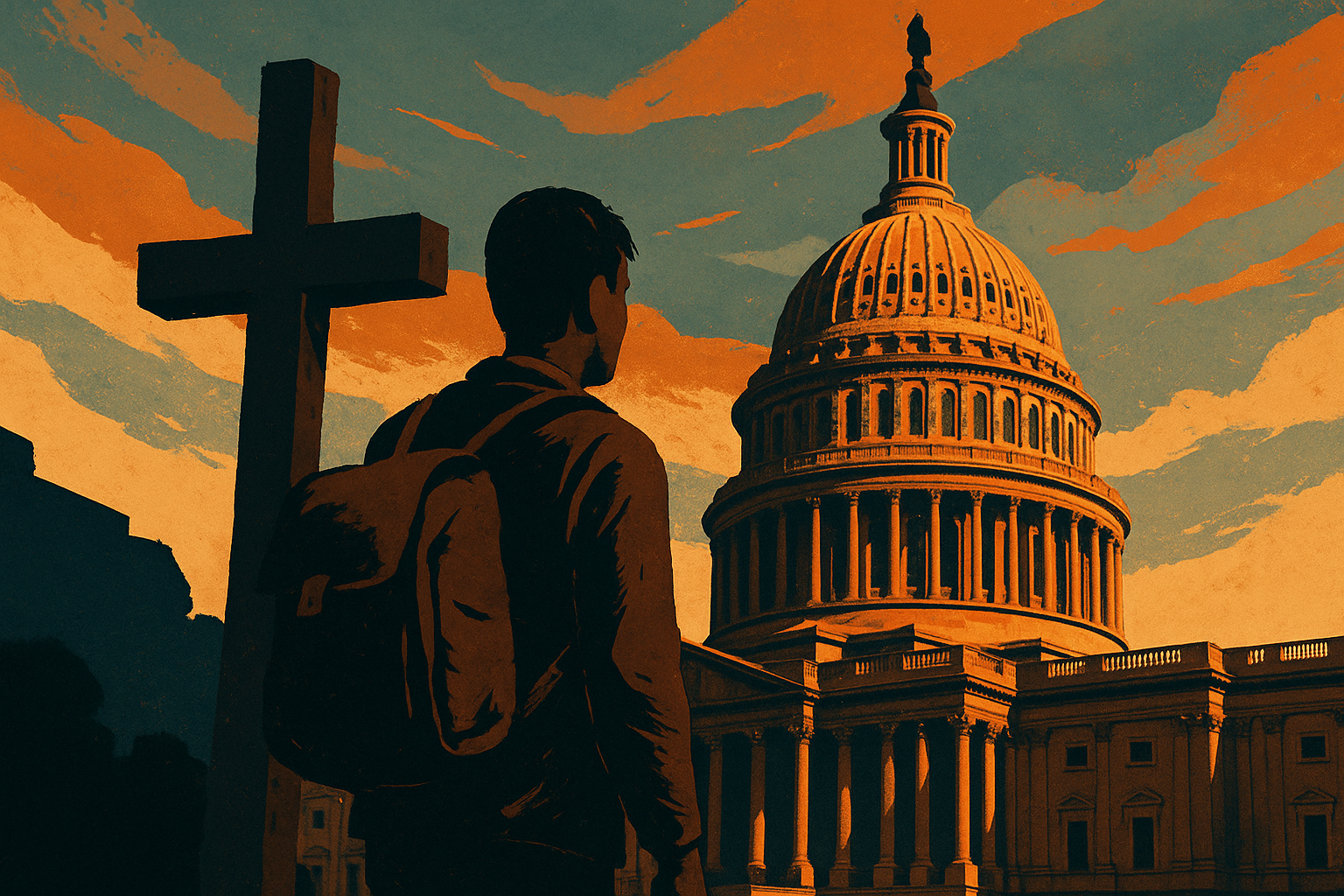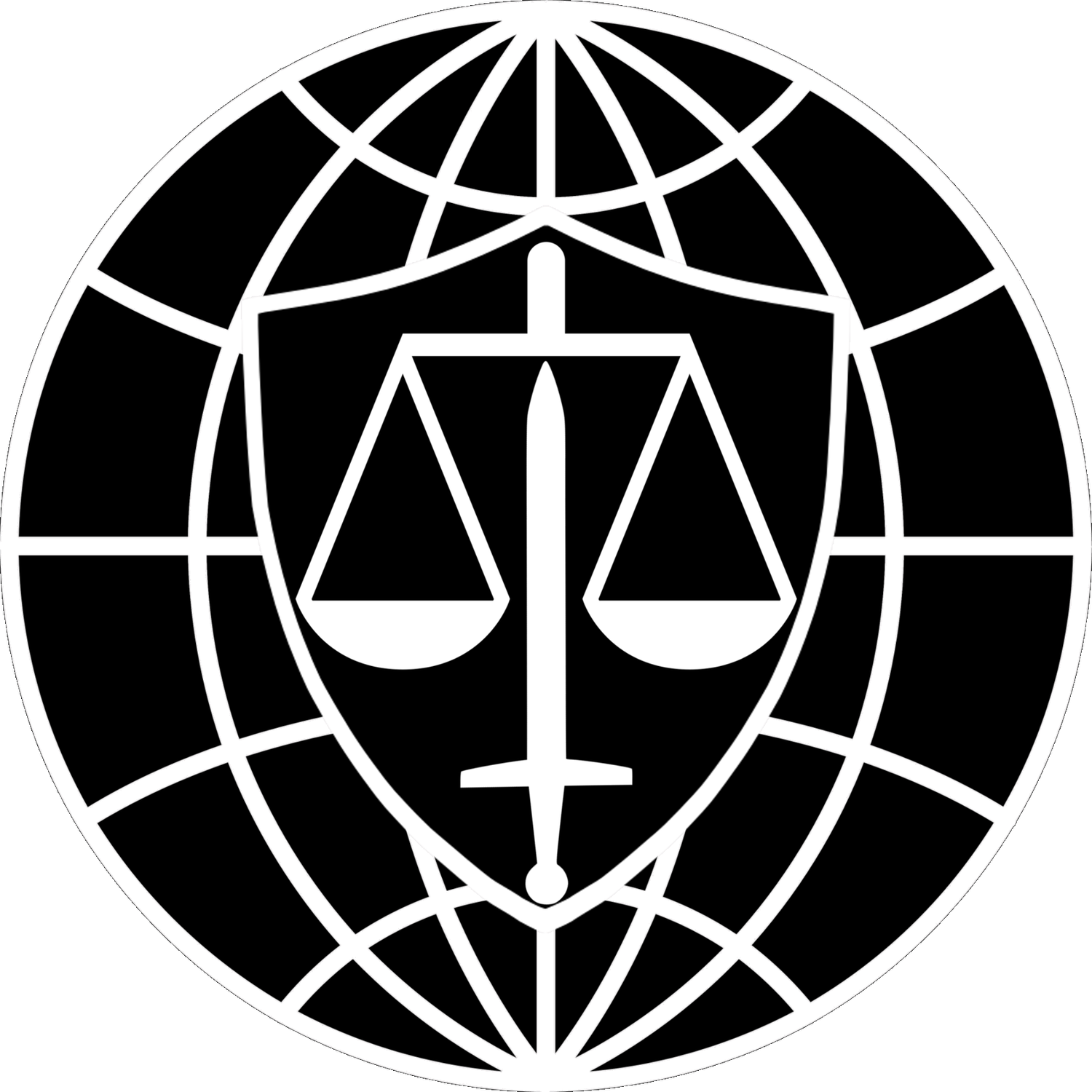Asylum in the United States Based on Religious Persecution
Date of Information: 07/25/2025
Check back soon; we update these materials frequently

Understanding Your Rights Under U.S. Asylum Law
The United States grants asylum to individuals who are unable or unwilling to return to their home country due to past persecution or a well-founded fear of future persecution based on specific protected grounds — religion being one of the most foundational.
If you’ve suffered harm or threats due to your faith, your conversion, your lack of belief, or your refusal to comply with religious norms, you may qualify for asylum under U.S. immigration law.
What Counts as Religious Persecution?
Religious persecution may include direct harm (like imprisonment, violence, or torture), as well as indirect oppression (like exclusion from education or government services, denial of religious expression, or economic punishment).
You may also qualify if:
You were punished by religious police or extremist groups the government cannot or will not control;
You were coerced to convert or to abandon your beliefs;
You were forced to worship in secret or denied access to religious texts or ceremonies;
You are a former member of a dominant faith and have since converted or renounced religion entirely.
U.S. law protects not just members of established religions, but all sincere systems of belief, including atheism, minority sects, and newly formed faiths.
How to Apply
File Form I-589: Application for Asylum and Withholding of Removal.
Deadline: Must file within one year of arrival unless you qualify for an exception.
Derivative Asylum: Your spouse and children (under age 21) may be included in your application.
Adjustment of Status: If granted asylum, you may apply for a green card after one year (Form I-485).
Legal Authorities and Case Law
This section outlines the definitions, evidentiary standards, and major legal precedents used to evaluate religious persecution asylum claims.
Evidentiary Standards
You must prove:
The persecutor knew of your religious identity or would likely discover it;
You were targeted or credibly threatened;
Your fear is based on specific conduct or threats, not just general conditions;
You were harmed for your faith, not for another reason.
See Mendez-Barrera v. Holder, 602 F.3d 21 (1st Cir. 2010); Quan v. Gonzales, 428 F.3d 883 (9th Cir. 2005); Ali v. U.S. Att’y Gen., 931 F.3d 1327 (11th Cir. 2019).
Examples of qualifying harm include:
Prohibition on attending church
Coerced abandonment of religious associations
Arrest, surveillance, or confiscation of religious materials
Impediments to open practice: the law does not expect applicants to conceal their beliefs to avoid harm. See Shan Zhu Qiu v. Holder, 611 F.3d 403 (7th Cir. 2010).
The International Religious Freedom Act (IRFA) of 1998 does not create any unique rights or entitlements under U.S. asylum law, but it significantly supports and informs asylum claims based on religious persecution by requiring the U.S. Department of State to publish an annual “International Religious Freedom Report” for every country. These reports:
Document violations of religious freedom abroad;
Identify countries of particular concern (CPCs);
Highlight patterns or practices of persecution against specific religious groups.
📌 These reports are routinely submitted in asylum proceedings as corroborating evidence to show that:
The government is complicit in persecution;
There is a pattern of religious repression;
The applicant’s fear is objectively reasonable.
“Religion” is Broadly Defined
Religion includes both traditional and non-traditional belief systems, as long as they occupy a place of central importance in the person’s life.U.S. law takes a broad and inclusive view of religion. This includes:
Institutionalized faiths (Islam, Christianity, Judaism, Buddhism, Hinduism)
Minority sects (e.g., Falun Gong, Ahmadi Muslims)
Atheism, agnosticism, or humanism
Non-theistic systems of belief that occupy a role in one’s life similar to religion
There is no requirement that a belief system be associated with a deity or that it be well-known.
Religion-Targeted Laws or Discrimination
Even a “neutral” law may qualify as persecution if it is enforced to target religious minorities. See Fisher v. INS, 79 F.3d 955 (9th Cir. 1996); Romeike v. Holder, 718 F.3d 528 (6th Cir. 2013).
Nexus Requirement
Religion must be “one central reason” for the harm. It is not enough that the persecutor is religious — the motive must be based on your beliefs or practices. See INS v. Elias-Zacarias, 502 U.S. 478, 483 (1992); 8 U.S.C. § 1158(b)(1)(B)(i)
Imputed Religion
You can qualify even if you don’t hold the belief — if your persecutor thinks you do, that suffices. See Rizal v. Gonzales, 442 F.3d 84, 90 n.7 (2d Cir. 2006); Mezvrishvili v. U.S. Att’y Gen., 467 F.3d 1292 (11th Cir. 2006)
Apostasy
Leaving or converting from a dominant religion (such as Islam) may be seen as treasonous or immoral and can give rise to asylum claims. See Zhang v. Ashcroft, 388 F.3d 713 (9th Cir. 2004); Shan Zhu Qiu v. Holder, 611 F.3d 403 (7th Cir. 2010)
🎖️ Conscientious Objection to Military Service
Refusing to serve in the military due to religious conviction may qualify only if:
Punishment is disproportionate and because of your beliefs;
The government knew of your objection;
No alternative civilian service is provided.
See Capric v. Ashcroft, 355 F.3d 1075 (7th Cir. 2004); Barraza Rivera v. INS, 913 F.2d 1443 (9th Cir. 1990); Ladyha v. Holder, 588 F.3d 574 (8th Cir. 2009)
Although the UNHCR Handbook supports asylum for religious pacifists, U.S. courts have largely rejected such claims. In Canas-Segovia v. INS, 970 F.2d 599 (9th Cir. 1992), and Dobrican v. INS, 77 F.3d 164 (7th Cir. 1996), courts held that military conscription without religious exemption was not per se religious persecution unless the applicant could prove the state denied exemptions and persecuted objectors for their beliefs.
Overlapping Grounds
Religion-based persecution often overlaps with:
Political opinion (e.g., protesting religious laws)
Particular social group (e.g., women resisting forced religious conformity)
🛑 Common Reasons Religious Asylum Claims Fail
No government connection to the harm. See Nikijuluw v. Gonzales, 427 F.3d 115 (1st Cir. 2005)
Lack of specific threats or targeting. See Zhakira v. Barr, 977 F.3d 60 (1st Cir. 2020)
Generalized violence blamed on religion. See Al Yatim v. Mukasey, 531 F.3d 584 (8th Cir. 2008)
Persecutor unaware of beliefs. See Yi Jing Zheng v. Lynch, 638 Fed. Appx. 85 (2d Cir. 2016); Zhuo Zheng v. Holder, 349 Fed. Appx. 562 (2d Cir. 2009
Frequently Asked Questions — Asylum Based on Religious Persecution
1) What counts as “religion” for U.S. asylum purposes?
U.S. law interprets religion broadly: traditional faiths, minority sects, new or unregistered movements, atheism/agnosticism/humanism, and other sincerely held belief systems that play a central role in a person’s life. It does not have to involve a deity or formal membership. Charles International Law
2) Do conversions, apostasy, or leaving my faith qualify?
Yes—if persecutors would target you for having converted, publicly renounced a faith, or changed denominations. Apostasy claims often turn on credible evidence of how such acts are treated in your home country. Charles International Law
3) What if the persecutors are not the government (e.g., militias or “religious police”)?
You can still qualify if the government is unable or unwilling to protect you from non-state actors; show that complaints go unanswered or protection is ineffective. Charles International Law
4) What is “imputed religion,” and does it count?
Yes. If you’re targeted because persecutors believe you hold certain religious views (even if they’re wrong), that can satisfy the protected ground. Charles International Law
5) What kinds of harm rise to the level of “persecution”?
Arrests, beatings, torture, death threats, coerced conversion or forced worship, blasphemy prosecutions, surveillance, denial of worship, or severe economic restrictions tied to religion. (General discrimination alone usually isn’t enough unless it causes serious harm.) Charles International Law
6) Do I have to hide my beliefs to be safe?
No. Asylum law does not require you to conceal or practice in secret to avoid persecution; claims can succeed where open practice would expose you to harm. Charles International Law
7) What evidence should I include with my application?
A detailed personal affidavit, witness letters, religious certificates/baptismal records, photos, communications showing threats, police or court documents, and independent country reports such as the U.S. State Department’s International Religious Freedom (IRF) Reports and reputable NGO reporting. Charles International Law
8) How important is the “nexus” requirement?
Critical. Your religion (or imputed religion) must be one central reason for the harm. Mixed motives are fine, but you should document statements, patterns, or laws showing the religious motive. Charles International Law
9) What about conscientious objection to military service on religious grounds?
Possible but narrow. You must show punishment would be severe or disproportionately enforced because of your beliefs, and that authorities knew of your objection (and no true alternative service exists). Charles International Law
10) Do I have to apply within one year of arriving in the U.S.?
Generally yes, but “changed circumstances” (e.g., conversion in the U.S., worsening country conditions, coming out as atheist) or certain “extraordinary circumstances” can excuse late filing if you apply promptly after the change. Charles International Law
11) Could internal relocation inside my country defeat my claim?
If a persecutor is national-level or the threat is widespread, relocation may be unreasonable. Explain why you cannot relocate safely (e.g., nationwide blasphemy laws, centralized surveillance, networked militias). Charles International Law
12) What are common reasons religion-based claims are denied?
Lack of government connection to harm; no specific threats/targeting; generalized violence labeled as “religious” without proof of motive; persecutor unaware of your beliefs; or credibility gaps between testimony and country conditions. Charles International Law
13) Who can I include with my application?
Your spouse and unmarried children under 21 may be included as derivatives. If granted asylum, you may typically apply for permanent residence after one year. Charles International Law
14) Where can I find reliable, citable country evidence about religious persecution?
The U.S. State Department’s annual International Religious Freedom Reports are routinely used to corroborate pattern-or-practice evidence and government (in)action. Charles International Law
💼 How Charles International Law Can Help
We have represented clients in a variety of religion-based asylum claims, including cases involving apostasy, religious minority persecution, government-mandated religious conformity, and nonbelief. Whether you're fleeing punishment for conversion, underground worship, or simply practicing your faith openly, we understand the stakes — and we’re here to help.
Our services include:
Preparing affidavits and documentary evidence
Handling USCIS interviews and Immigration Court hearings
Developing tailored country-conditions reports and expert statements
Advising on safe disclosure of belief or nonbelief, especially in high-risk contexts
Other Helpful Resources:
See Also:
CIL Guide to the Circumvention of Lawful Pathways Rule

